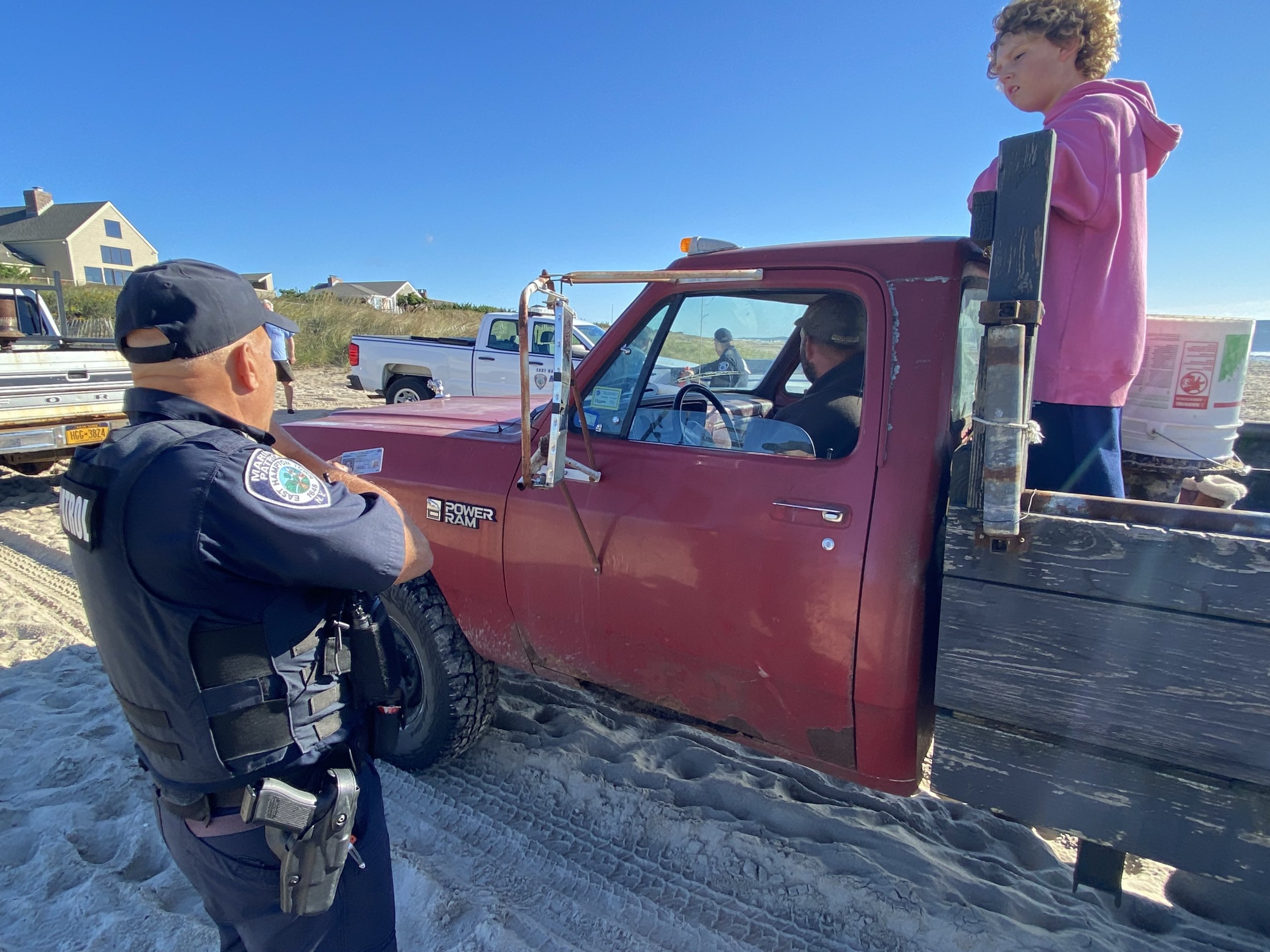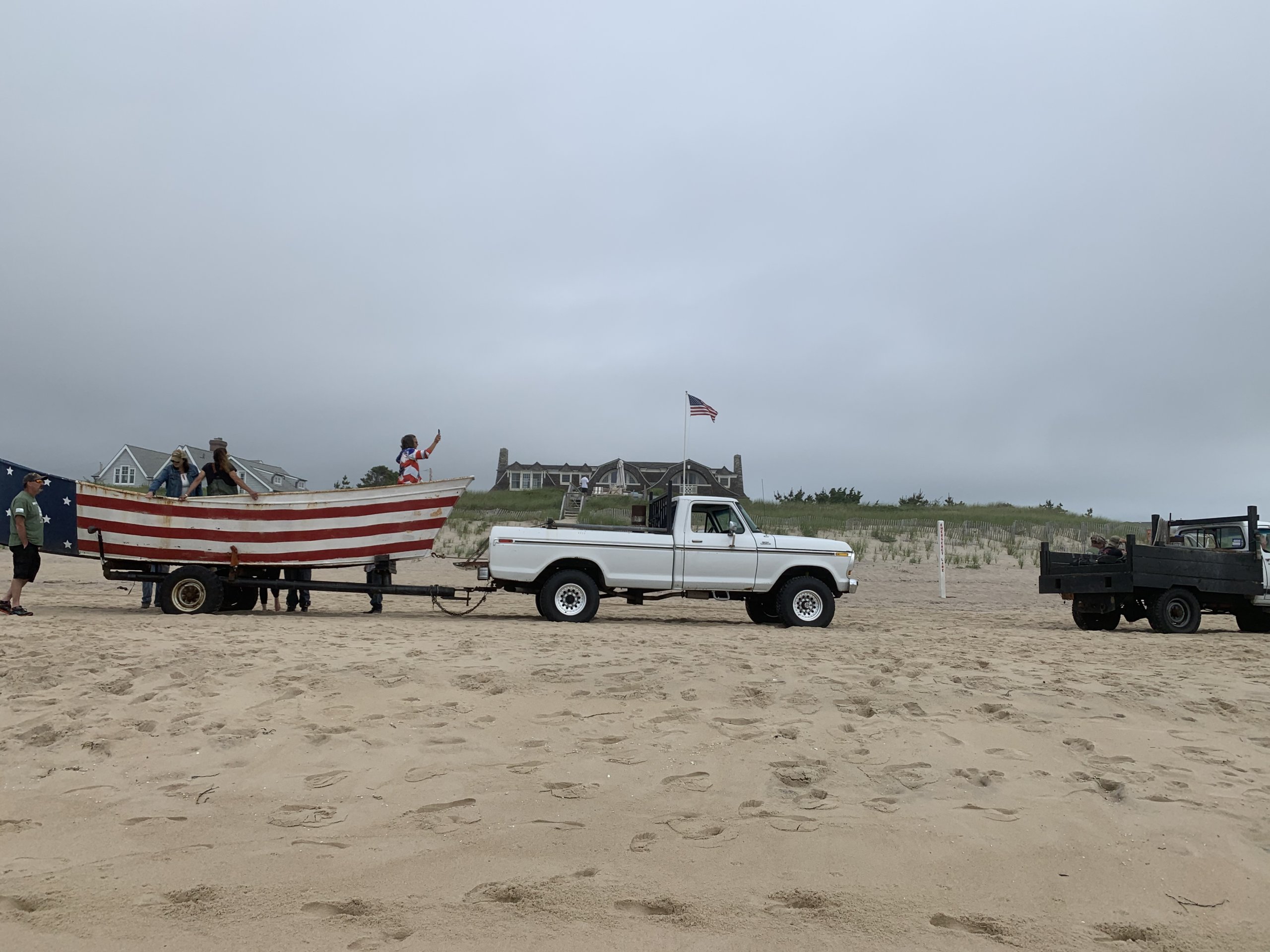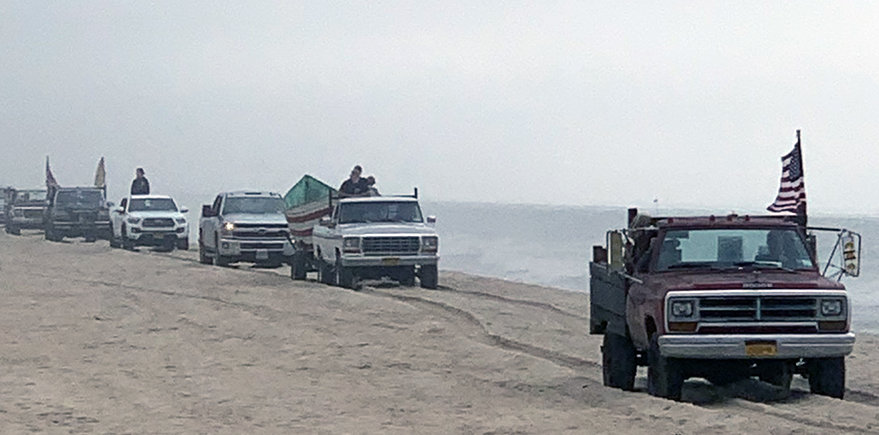Fish Fight: Baymen File Class Action Suit to Regain Truck Beach Access

Fishermen fighting for their right to drive on Truck Beach, a disputed fishing spot in Napeague, cast their latest attempt to reel in oceanfront property owners’ efforts to keep the shore private.
Attorneys for 12 fishermen and the East Hampton Town Trustees — the panel created three centuries ago to manage public use of town beaches, bay bottom and wetlands — are luring a Suffolk County court judge to certify as a class-action a lawsuit filed March 17 on behalf of the town’s 28,000 residents. Attorneys for the homeowners argued the anglers should cut the line and move on after an appeals court panel recently ruled the beach to be truck-free. The new suit is one of several pending issues expected to keep the matter in court beyond the 13 years it’s already been litigated. “From my clients’ perspective, it’s a fight for their very existence,” said Southampton-based attorney Dan Rodgers, who noted that his clients — 11 commercial fishermen and one recreational angler — aren’t seeking money. “They literally can’t earn a living to support their families.”
A central issue in the case is an 1882 land sale by the Town Trustees to then-resident Arthur Benson. The homeowners argue that the beach was included in subsequent property deeds, but the state Supreme Court rejected the argument in 2016. The Appellate Division, Second Judicial Department reversed that ruling in February, barring off-roaders from driving on the shore. And in refusing to hear the case, the state Court of Appeals in effect agreed with that ruling.
The fishermen and trustees maintain that the ruling kept intact an easement that allows them to fish from the beach, but argue that commercial fishermen need trucks to do so, which the homeowners do not want. Rodgers notes that the Benson deed allowed fishermen to use “wheeled conveyances” to transport their gear to the surf. In the 19th century, before automobiles were invented, they used carts. Nowadays pickup trucks are the wheeled conveyance the fishermen use, Rodgers says.

Stephen Angel, the managing partner of the Riverhead-based law firm of Esseks, Hefter, Angel, Di Talia & Pasca that represents four homeowners associations that originally sued to ban driving on the beach in 2009, said that the courts already ruled on the questions the fishermen raise in their latest case.
“They want another bite at the apple,” Angel argued. “They’ve already had a bunch of bites. … Based on my experience, once you litigate something over a 13-year period with intervening areas of appeals and a trial that lasted for over a week, you generally don’t get another bite at that apple.”
Daniel Spitzer, an attorney with the Manhattan-based law firm of Hodgson Russ LLP who represents the trustees, countered that there are still unresolved issues at play for the courts to decide.
“The original lawsuit had a lot to do with the town issuing permits for recreational truck driving. That’s not what this lawsuit is about at all,” Spitzer said. “The homeowners association has attempted to present the (access rights) in a way that severely impacts the commercial and recreational fishing industry in East Hampton. Clarification of what are our rights is why we commenced the action.”

In October, town authorities summonsed 14 people for driving their trucks onto the beach in an act of civil disobedience to protest the appeals court’s ruling last year. Suffolk Judge Paul Baisley later granted a request from attorneys for the homeowners to have the protestors’ trespassing cases moved from East Hampton Town Justice Court to his court, where the beach access suit was handled. The town then filed a lawsuit against the homeowners.
“Consolidating civil and criminal matters together is inappropriate, as (the) plaintiff’s requested stay of the criminal proceedings while this motion is pending could affect the criminal defendants’ right to a speedy trial,” Christopher McDonald, an attorney with the Albany-based law firm of Whiteman Osterman & Hanna LLP, who represents the town in the case, wrote to the judge.
Outside of court, the town has said that it plans to explore condemning the disputed 4,000-foot stretch of beach west of Hither Hills State Park under eminent domain, the legal process in which the government can seize land for public use. But to date, the town has not followed through on that threat.
“The ability for all members of the public to access and use our beaches is a fundamental right for East Hampton’s residents, one that must be protected and maintained,” East Hampton Town Supervisor Peter Van Scoyoc has said.
Advocates such as Kevin McAllister, the founding president of the Sag Harbor-based environmental advocacy group Defend H2O, has also been sounding the alarm about the Truck Beach case being a sign of “the privatization of the public’s beaches.”
The case essentially pits wealthy oceanfront homeowners in Amagansett against a subset of Bonackers — descendants of the South Fork’s Colonial-era settlers — who are among the dwindling few baymen still practicing one of the community’s earliest professions: fishing.
When will the debate over whether Bonackers can use their pickups to fish at Truck Beach finally be put to rest? It may be only those with the patience of a fisherman who have the endurance to find out as this saga continues.



